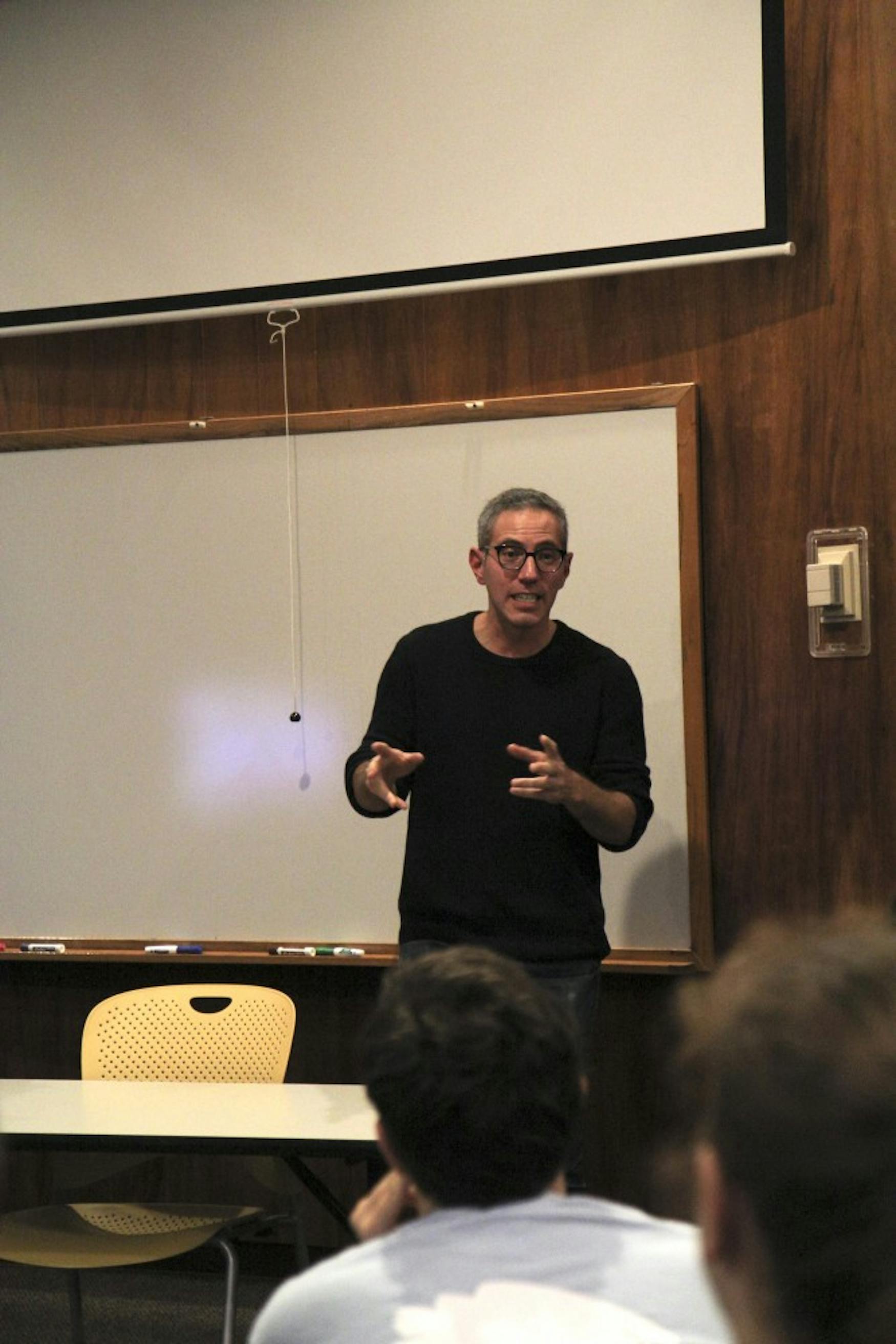‘Pitch Perfect’ author discusses adventures in journalism, screenplays
On Wednesday, writer Mickey Rapkin detailed his journey from a wandering college graduate to magazine journalist to author to screenwriter, speaking to an audience of Brandeis students and a cappella fans. Rapkin is best known for writing “Pitch Perfect: The Quest for Collegiate A Cappella Glory,” the 2008 nonfiction book upon which the “Pitch Perfect” movies are based. Two University a cappella groups, VoiceMale and Company B, surprised the audience by performing before the lecture.
Rapkin studied communications (and participated in an a cappella group) at Cornell University before moving to Madrid, where he spent several months teaching kindergarten before getting a job writing for a magazine.
He later moved back to New York, where he worked for two magazines, Details and then Gentleman’s Quarterly. It was at GQ that he wrote an article that got the attention of a book publisher, who told Rapkin he should write a book. After working on and pitching his book proposal, Rapkin began work on “Pitch Perfect.”
While working a full-time job at GQ, Rapkin found time for his book by using his vacation days to take Fridays off and shadow any of the three college a cappella groups he was writing about. “I would leave on Thursday night and I would go to meet them wherever they were,” he said. “I would go to early rounds of competitions, I would go to the recording studio, I went to spring break with the group from Virginia, just hanging around, a fly on the wall.”
While Rapkin was writing the book, actress Elizabeth Banks heard about the book and contacted him about making a movie. “[Banks] was like, ‘The movie’s going to be ‘Bring It On’ for a cappella groups,” Rapkin said. When the book came out, Banks took the idea to Universal Studios, and they bought it.
Rapkin said that throughout the process, even after Universal bought the movie, he remained skeptical about whether Banks’s plans would be realized. When he received the contract for the movie rights, he thought, “I don’t care, they’re never going to make this movie anyway. I’ll just take the check,” and signed away all the rights without reading the contract.
Years after Banks initially contacted him, Rapkin received a call from Banks inviting him to the set of “Pitch Perfect.” She told him that filming would start in three weeks. “I never imagined a film studio would want to make one movie, let alone three movies, about college a cappella groups,” Rapkin said.
Rapkin described his awe upon seeing the movie set for the first time. He recounted, “I fly out to the set of the movie. Anna Kendrick’s sitting here, she’s reading ‘Game of Thrones’ on the side, … and I’m meeting everyone, and there’s Rebel Wilson, and it says on the back of the chair ‘Pitch Perfect,’ and I’m like, ‘This is the craziest thing that will ever happen to me.’”
After the first movie began production, Rapkin chose to leave his “dream job” at GQ to focus on screenwriting, which he does now, along with freelance magazine writing. Rapkin said he recently sold a musical horror movie and alluded to a “Pitch Perfect 4,” saying that although he is skeptical, “it is possible.”
Ten years after publishing “Pitch Perfect: The Quest for Collegiate A Cappella Glory,” Rapkin reflected on his book. “There’s a billion things I would do differently.” He paused and shrugged. “Too late.”
Rapkin said that part of the reason his idea did so well was that he was passionate about the subject matter. “It’s really been this incredible journey that oddly all started because me and my friends loved, more than anything, to sit in a room with a pitch pipe.”




Please note All comments are eligible for publication in The Justice.